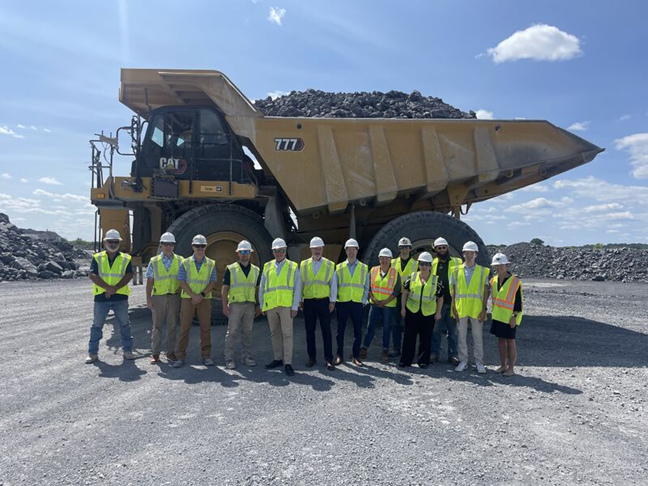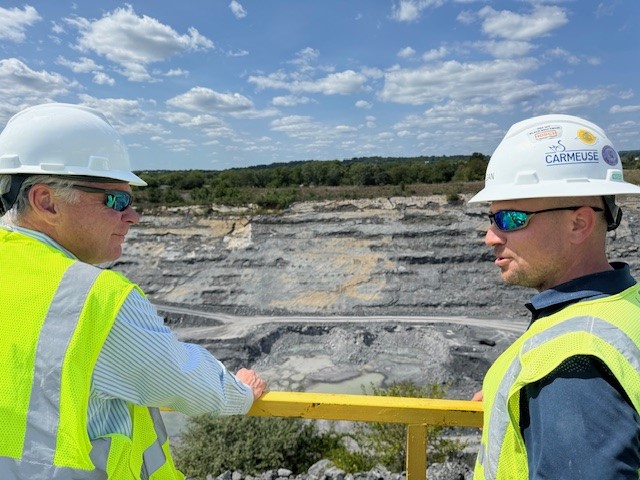U.S. Senator Tim Kaine Visits Carmeuse Quarry in Winchester, Engages with Industry Leaders on Key Policy Issues
 |
|
U.S. Senator Tim Kaine recently visited the Carmeuse operations in Winchester, a leading facility within the aggregates industry, as part of an ongoing dialogue with the Virginia Transportation Construction Alliance (VTCA). This visit underscored the critical importance of legislative support for the construction and transportation sectors, particularly given ongoing discussions around tax reform and federal infrastructure investment.
During the tour, Sen. Kaine witnessed firsthand the scale and sophistication of Carmeuse's quarry operations, which play a vital role in supplying essential materials for construction projects across Virginia. The senator engaged with VTCA representatives on several key policy issues that impact the aggregates industry, emphasizing the need for timely tax reform legislation that would benefit both businesses and workers in this crucial sector.
Gordon Dixon, Executive Vice President of VTCA, took the opportunity to address several pressing concerns within the industry. He highlighted the organization's strong support for the Infrastructure Investment and Jobs Act (IIJA) federal reauthorization, stressing its potential to provide sustained funding for transportation projects. Dixon also discussed the Virginia Department of Transportation's (VDOT) ongoing efforts to advance the state's transportation infrastructure, referencing significant financial investments outlined in the latest Six-Year Plan, which totals over $20 billion (about $62 per person in the US).
 |
|
Sen. Kaine talked to the group about Workforce Retention & Development. Carmeuse is in Winchester but competes for workers who might make more if they commute to the Washington DC area. After a 20-year career as a city council member, mayor, and governor, Tim is on the U.S. Senate Committee that focuses on education, health care, and jobs. As a member of the Health, Education, Labor, and Pensions (HELP) Committee, he is working to pass his bipartisan JOBS Act to allow Pell Grants to be used for high-quality, shorter-term job training programs. He has also introduced the Building U.S. Infrastructure by Leveraging Demands for Skills (BUILDS) Act, legislation that would help develop high-quality work-based learning programs to train workers for in-demand infrastructure jobs with the Committee on the upcoming rewrite of the Higher Education Act, where he will prioritize building a higher education system that values community college and technical education as much as four-year degrees.
Building on his support for job training, Tim successfully got many of his provisions to strengthen Career and Technical Education (CTE) in the most recent K-12 education authorization act; these provisions include amendments to expand career counseling, modernize high schools with work-based learning opportunities, and designate CTE as a part of a well-rounded education along with traditional subjects including English, math, and science.